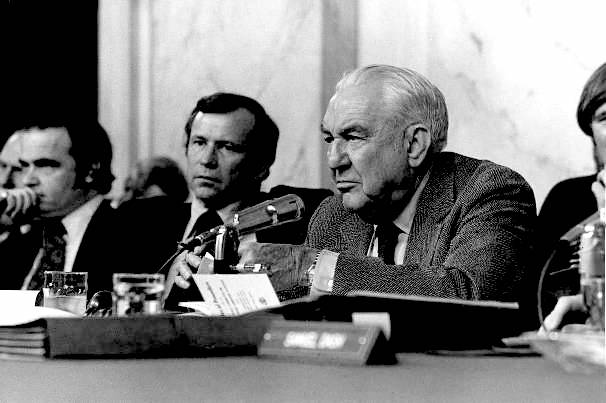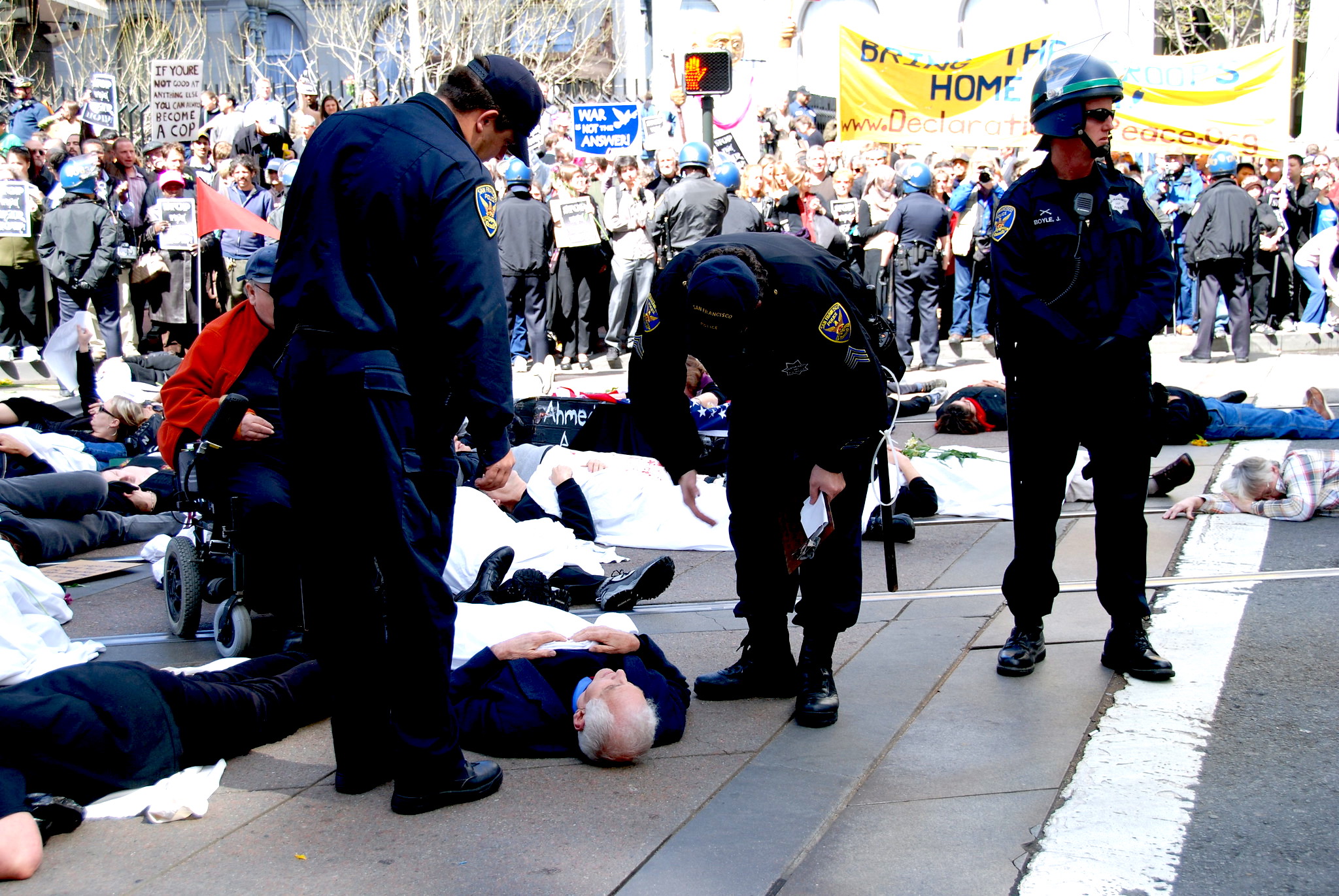The term “Fourth Estate” had taken on the dust of a neglected antique before the release of the Pentagon Papers. Afterwards it seemed possible to think again of the press as the independent pole of power required by a working democracy.

Dan Ellsberg at a press conference in New York City, 1972. (Bernard Gotfryd, Public domain, Wikimedia Commons)
By Patrick Lawrence
Special to Consortium News
 I have never met Daniel Ellsberg. A mutual friend, Rob Johnson, the executive director of the Institute of New Economic Thinking, in New York, proposed to introduce us several times but the occasion never presented itself. It does not matter. I know Dan Ellsberg as one knows someone by way of the work he or she has done, and what that work has meant in one’s life.
I have never met Daniel Ellsberg. A mutual friend, Rob Johnson, the executive director of the Institute of New Economic Thinking, in New York, proposed to introduce us several times but the occasion never presented itself. It does not matter. I know Dan Ellsberg as one knows someone by way of the work he or she has done, and what that work has meant in one’s life.
Another friend, a dear one, wrote a note from Gadsden, Alabama, last Thursday with the subject line, “Ellsberg dying.” This was thoughtful, as this friend unfailingly is, because Twitter has censored my account and I cannot read anything on it unless someone sends an item I am able to open. Ellsberg broke the news first to friends and supporters, among them ConsortiumNews, and then decided to share it on his Twitter account after someone had leaked it. “I’m sorry to report to you that my doctors have given me three to six months to live. Of course, they emphasize that everyone’s case is individual; it might be more, or less.”
[Related: Daniel Ellsberg’s Not Yet Goodbye]
In the letter, Ellsberg recounts his experiences during and since the Pentagon Papers period — the antiwar work, the work against nuclear weapons:
“When I coped the Pentagon papers in 1969, I had every reason to think I would be spending the rest of my life behind bars. It was a fate I would have gladly accepted if it meant hastening the end of the Vietnam War, unlikely as that seemed (and was). Yet in the end, that action — in ways I could not have foreseen, due to Nixon’s illegal responses — did have an impact on shortening the war.”
And, addressing all of us forthrightly:
“It is long past time—but not too late—for the world’s publics at last to challenge and resist the willed moral blindness of their past and current leaders. I will, as long as I am able, to help in these efforts….”
I wrote this letter recently to my friends in the antiwar and anti-nuclear movements. I see it’s being circulated, so I’ve decided to share it here. For all of you working on these issues, thank you, and please keep going! pic.twitter.com/8BIerLHD2U
— Daniel Ellsberg (@DanielEllsberg) March 2, 2023
I detected in this letter the same modesty in combination with gumption, passion, great courage and… what?… down-to-earthness that Daniel Ellsberg has projected in his public life for the past 52 years, beginning in the spring of 1971, when The New York Times, and subsequently The Washington Post and The Boston Globe, began publishing portions of the Pentagon Papers?
We recall the extraordinary integrity Ellsberg displayed when, as a defense analyst at the RAND Corporation, he secretly Xeroxed great volumes of classifed documents on the hidden conduct of the Vietnam war and passed them to carefully selected correspondents, Neil Sheehan of the Times and Ben Bagdikian of the Post. [Ellsberg also gave the Papers to the late Senator Mike Gravel, who read them into the Congressional record.]
Whistle-Blowing Greatness
This still stands as one of the great whistle-blows of our time. Ellsberg took the lid off 22 years of deceptions, corruption, mis- and disinformation, 1945 to 1967, so that Americans could at last see what was being done in their names and how their government had been lying to them about its conduct of a never-declared and so unconstitutional war of aggression. Only Edward Snowden’s equally courageous decision a decade ago to expose the national security state’s illegal surveillance programs, and Chelsea Manning’s leaks revealing the Pentagon’s methods in Iraq, Afghanistan and in its disgraceful prison at Guantánamo Bay, match what Ellsberg did — for its bravery and its consequence.
I was just finishing my university years in Nashville when the Times and the other big dailies started publishing the Pentagon Papers. It seems to me now the press’s decision to work with Ellsberg had a special significance for me and for others who, like me, aspired to make themselves journalists.
The big paper in Nashville then was The Tennesseean, a mid–South island of liberalism (a term that meant something better than it does now) run by a family named Seigenthaler. The Seigenthalers were close to the Kennedys and had employed, at one or another time, the young David Halberstam and the even younger Al Gore. For a long time there may as well have been a conveyor belt from the Vanderbilt campus to the Tennesseean’s newsroom just down West End Avenue. But the U.S. was in recession when I graduated, and the paper had nothing on offer. This turned out to be a disguised blessing.
When I made my way back to New York I found the journalism scene alive with a new kind of optimism. Reporters and editors were flush with confidence as to what they could get done. The term “Fourth Estate” had long earlier taken on the dust of a neglected antique, the notion of another age. But it seemed possible, with the release of the Pentagon Papers, to think again of the press as the independent pole of power a working democracy needed it to be.
Restoring Press Stature

The New York Times’ publishing headquarters, 1913–2007. (Trxr4kds, Public domain, Wikimedia Commons)
That optimism, that confidence, all those uplifted eyes: These were among Dan Ellsberg’s gifts to those of us planning to devote our professional years to the Great Craft. No, in magnitude this was no match to Ellsberg’s monumental achievement in making public the true history of America’s conduct in Southeast Asia. But it mattered — to journalists, to readers and viewers, to the polity altogether.
Two summers after the big dailies published the Pentagon Papers, the Times having taken the Nixon administration all the way to the Supreme Court to defend the press’s right to do so, the Watergate scandal began to break. “Yes! We’re getting it done! We’re confronting power with that power that is ours alone!” Every journalist I knew said this, silently or out loud. The publication [MORE], a motley monthly written and edited by journalists who took themselves and their profession seriously, reflected this spirit on every one of its tabloid pages.
This spirit, upon which all Americans could draw, was another of Ellsberg’s gifts to his time.
In the autumn of 1971, the Pentagon Papers having split open the American consciousness like a machete taken to a coconut, Hannah Arendt published “Lying in Politics: Reflections on the Pentagon Papers” in The New York Review of Books. Arendt concluded from her reading of the documents that the national security state had led Americans into “an Alice-in-Wonderland atmosphere,” a sort of collective psychosis that arose from what she called “defactualization”—a term as eminently useful in our time as it was in Ellsberg’s and hers.
Facts are fragile, Arendt wrote, in that they tell no story in themselves, a little in the way a stone in the road simply sits there and has no story to tell. This leaves them vulnerable to the manipulations of storytellers. “The deliberate falsehood deals with contingent facts,” Arendt explained in this remarkable piece of work, “that is, with matters which carry no inherent truth within themselves, no necessity to be as they are; factual truths are never compellingly true.”
The facts don’t, after all, speak for themselves, the folk wisdom notwithstanding.
Dan Ellsberg gave us the wisdom to know ourselves and our institutions and our time in this way. Arendt was his best interpreter, in the way art critics explain to us what the great painters are doing and saying.
I confess I have long had misgivings about the optimism in the air during the time I describe. How bravely and independently did the press actually act?
The Watergate story that propelled Carl Bernstein and Bob Woodward to fame may not have come to light had certain factions of Washington’s permanent bureaucracy not wished to depose a president they found incompetent. Those honored correspondents filing reports critical of the Vietnam war, Halberstam and Sheehan among them: Would the major dailies and wire services have published their work had the tide of opinion in high places not begun to turn?

Sam Ervin on right, as chair of the Senate Watergate Committee alongside Howard Baker, center, and Fred Thompson, left. (U.S. Senate, CC BY-SA 3.0, Wikimedia Commons)
Ditto the Pentagon Papers: Would the Times have gone into print with what Ellsberg gave Neil Sheehan were there not, by then, considerable antiwar sentiment even in the mainstream of American thinking?
In hindsight, I think the Pentagon Papers and Watergate did journalism harm as well as good. In re-legitimating the mainstream, they calmed a gathering wave of criticism within the profession and a longstanding distrust among readers and viewers — both heartily deserved.
You may think at this point I cast aspersions on Ellsberg’s legacy. Not a bit of it. The spirit he engendered — a spirit of engagement, we might call it — is at least as alive now as it was in the early 1970s, and maybe more so now than then. It simply abides in a different place among us — among journalists and among those who look to journalists for reliable accounts of the world in which we live.

Daniel Ellsberg being arrested at Iraq war die-in San Francisco, March 19, 2007. (Steve Rhodes/Flickr, CC BY-NC-SA 2.0)
When I first got into journalism it was with true and deep pride that I was entering one of the most honorable of professions. When I bailed out of the mainstream press 30–odd years later, the craft I had held so high was an embarrassment. I could not get far enough away fast enough.
I was reminded of this when I read Ellsberg’s letter and began thinking about what this distinguished, humane man has meant to me. To fool around with time’s arrow for a sec, what if a young man named Daniel Ellsberg had just pilfered some lid-lifting documents exposing the criminal malfeasance of the national security state and gone to the Times or The Post to get them published? Would they do now what they did 52 years ago?
You either have to laugh or do the other thing.

You don’t read about all the antiwar and antinuclear work Ellsberg has done since the Pentagon Papers — not in the Times or the Post. The mainstream refuses to report blows of the whistle now — Washington’s craven corruption of the Organization for the Prohibition of Chemical Weapons, for instance.
When Seymour Hersh recently published his investigative exposé documenting the Biden regime’s covert operation to destroy the Nord Stream pipelines, mainstream media flinched and did their best to discredit Hersh’s work, as they are wont to do whenever Sy publishes.
The corporate-owned press and broadcasters worked with Julian Assange and WikiLeaks, and worked well, until the Obama administration turned against the man and the publisher. Now they dishonestly mark both down as creatures of the Kremlin.
[Related: Daniel Ellsberg: Indict Me Too]
Who defends Assange now? Where did the OPCW story break? Where did Sy Hersh publish “How America Took Out the Nord Stream Pipeline?” Where, to answer these questions all at once, are you reading this commentary?
No, the optimism and confidence Ellsberg did so much to give America and its journalists back in the 1970s has nothing like evaporated. It only looks that way. It resides among independent publications and those who read them. Whether he thinks of it this way or otherwise, Daniel Ellsberg, now 91, has long waged war against the very press that once gave sanctuary to the course of action he took.
Let us reflect for a moment on how times have changed.
And then let us honor the man and “keep going!” as he asks. Yes, let us wish him all the salt his palate desires and keep going.
Portions of this piece are adapted from the author’s book, Journalists and Their Shadows, forthcoming from Clarity Press.
Patrick Lawrence, a correspondent abroad for many years, chiefly for the International Herald Tribune, is a columnist, essayist, author and lecturer. His most recent book is Time No Longer: Americans After the American Century. His Twitter account, @thefloutist, has been permanently censored. His web site is Patrick Lawrence. Support his work via his Patreon site. His web site is Patrick Lawrence. Support his work via his Patreon site.
The views expressed are solely those of the author and may or may not reflect those of Consortium News.

Patrick Lawrence calls it: ELLSBERG’S LEGACY, “A SPIRIT OF ENGAGEMENT;”
“And then let us honor the man and “keep going!” as he asks. Yes, let us wish him all the salt his palate desires and keep going.”
AND, “Let us reflect for a moment on how times have changed,” or not, ‘WAR rules the day.’ IMO, “The land of the free and the home of the brave is a f/war zone!” This isn’t “a street fight.” This is f/WAR. The Ruling Class vs. The Working Class.
The $h*tuation is beyond jacked the flock up!!! Everybody, knows, “A Nation of sheep begets a Government of wolves.” AND, the “Wolf @ the Door,” is a jacked-up BlueBird!!! AND, he doesn’t fly alone! Check! It’s Corporate collusion, corroboration, cooperation, in the name of National Interests, disappearing investigative journalism. It’s insulting & beyond outrageous!!!
TOMORROW, March 9, 2023, The Hearing on The Hill, IS “the House Weaponization Committee To Focus On the Twitter Files’. Substack reporters MATT TAIBBI & MICHAEL SHELLENBERGER set to testify @ a daytime Hearing. Taibbi’s “Part 6,’ FBI’s ties w/Silicon Valley, suppressing content. Shellenberger’s “Part 7,” FBI discrediting Hunter’s laptop.
No doubt, needed is a PRIORITY HEARING. A Numero Uno, i.e., The “Disappearance of Investigative Journalists via Social Media Platforms & in MSM Newspapers.” Every Journalist adversely impacted, deserves to know “WHY, He/She was Disappeared!!! By EOD, Friday, March 10, 2023. “Chop! Chop!
The Muckity-Muck’s Standard Operating Procedure is ignore & war. It adds up, Biden-Harris + their Board of Executioners + CONGRESS = WAR! The War on Terra & the Economic Warfare aka Social Murder via Social Media Platforms!!! “They” wanna own it, the land, air, sea, social media platforms, the news, the narrative, our minds, bodies, souls. Our heart & bones. Our, DNA! Fugg ‘Em!!!
Fingers crossed, tomorrow’s Hearing leads to a Priority Hearing, “Why is our government trying to kill us? Economic warfare is Social murder. CUI BONO?!?
“The theory of change is discipline by engaging its reality on the ground.” (RALPH NADER) Onward & Upwards. Ciao.
I weep in honor of his courage and the loss of him.
daniel Ellsbergs courage and also for the loss.
I suggest all read the piece referenced in this post
hxxps://www.nybooks.com/articles/1971/11/18/lying-in-politics-reflections-on-the-pentagon-pape/
It’s a long one, but well worth the effort – Arendt’s analysis of the “thinking” involved re the VN war can well be applied to the “thinking” re the conflict in Ukraine – It’s a remarkable and well written piece – the “banality of evil” still reigns …
After watching the 2008 movie, “Romulus, My Father,” and learning that it was an autobiographical story of Australian philosopher, Raimond Gaita, I was drawn to read his books, “Good and Evil: An Absolute Conception” and “A Common Humanity: Thinking about Love and Truth and Justice.” I rank “A Common Humanity” as one of the most personally influential books I’ve ever read, pondered and digested. (No book on my shelves has more tags sticking out the pages.) It was Gaita and his many references to Arendt’s writings that led me to read her profound works as well. Here we find ourselves with a wealth of wisdom while wallowing in the geopolitics of the absurd and deadly. We can certainly see the banality of evil all around us as we numb ourselves through consumeristic escapism.
Thanks very much Patrick. Such clarity, such honesty in DE’s letter and your work in getting it to us have lifted the spirits of this 88-year old.
It is unfortunate that, rather than criticize the Kennedy and Johnson administrations (other than with gloves of velvet), Mr. Lawrence, whom I admire, takes pot shots at Richard Nixon, whom history has refused to objectively analyze, … par for the course. The Fourth Estate, then as now, was woefully short on objectivity.
Hmmmm—- …” history has refused to objectively analyze” Nixon.
I think that Nixon gave us a perfect view of a man who”would be king,” but didn’t have the real skills.
My dad used to save old magazines and one of them had a story of Nixon as President. I think it was in a magazine called ,LOOK. There was Nixon walking on the beach with a reporter and , OMG, he was dressed in a suit and wearing wingtips as he walked on the beach! Who does that????
He seemed to be so out of touch with humanity, emotions, and purpose. And even worse, he seemed to be so prepared to lie in order to win.
Let’s face it: Clean Water Act, Clean Air Act, EPA open door to China – Nixon would be too liberal for any of the two, ossified parties to elect today. And these accomplishments were all because he was afraid not to throw scraps to the dogs who might encircle him at any time. We cannot have peace as long as our leaders are not afraid of us. And the possibility of that happening now, with the gold-plated capitulation of the media at every degree of the radius, is an armor-plated impossibility.
Read Arendt’s piece ….
No writer can comment on everything.
Mainstream journalism no longer exists. It hasn’t for decades. Most reporters aren’t worthy of calling themselves journalists. I know. I was often among them, even though I, at the time, gravely doubted the integrity of the industry in telling the truth or a least looking for it. And it has gotten considerably worse in the past couple of decades: from bad to horrible. Consortium News and its ilk are able but, unfortunately, insignificant, even though I cobble a handful of words in this post largely agreeing with what is said but understanding that these feeble efforts are little more than the minor ramblings of a retired someone (me) who knows considerably less than he thinks he does — and has always known that.